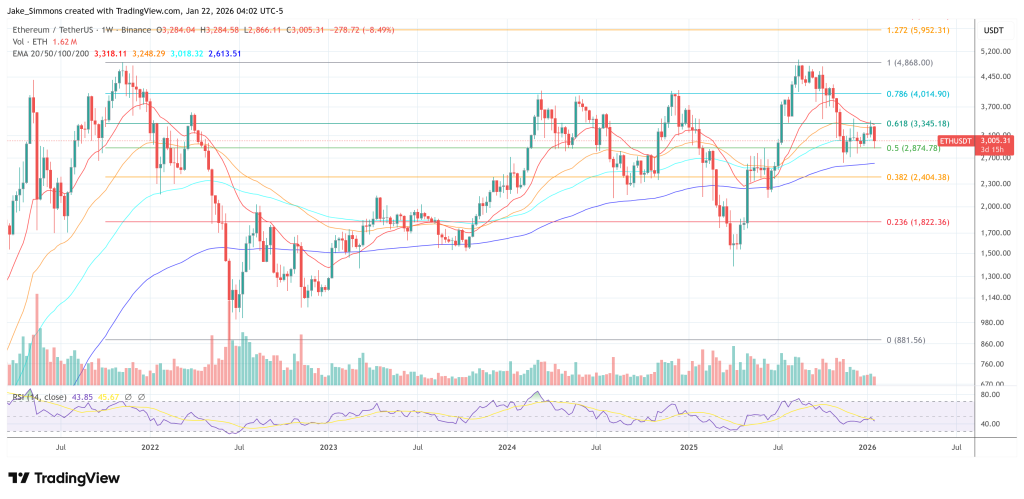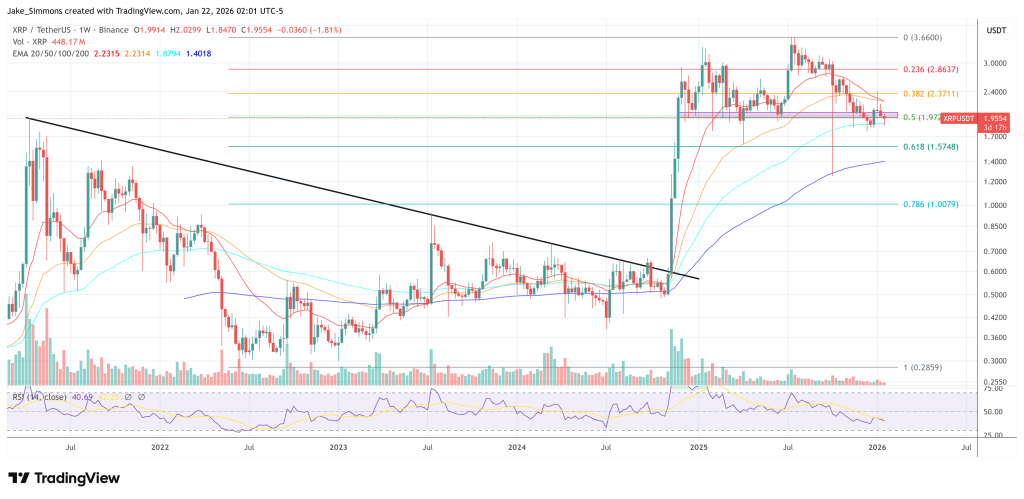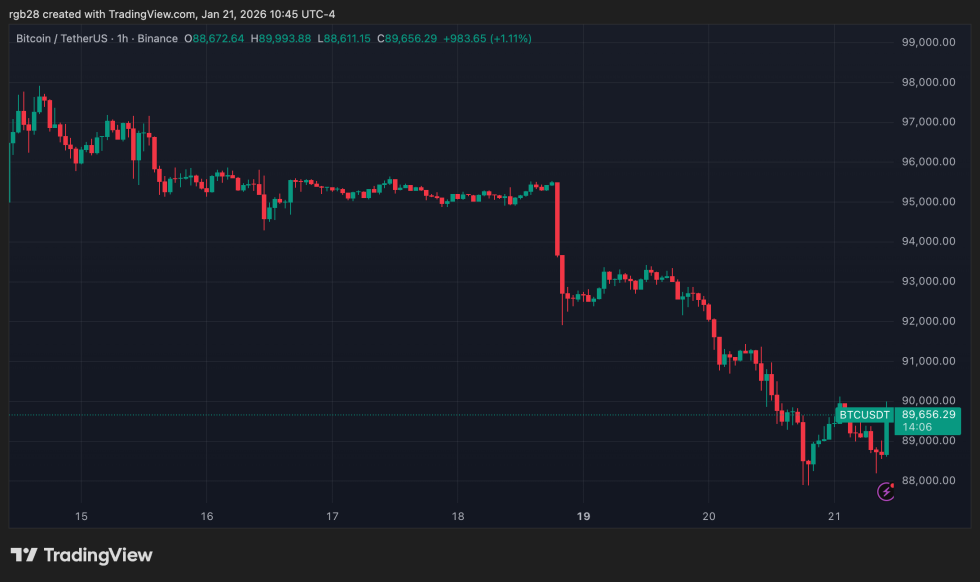
Venture capital firms invest in early-stage startups to fuel innovation, growth and technological advancements within the crypto ecosystem.
Future of venture capital financing in the crypto space
The recent United States Securities and Exchange Commission charges brought against major crypto exchanges may significantly impact future VC financing for cryptocurrencies.
The allegations highlight the regulatory issues surrounding the cryptocurrency business and could result in heightened regulatory scrutiny. To adapt to the shifting regulatory landscape, VC companies may need to modify their investment strategy and improve their due diligence procedures.
VC firms will likely prioritize investments in projects demonstrating strong regulatory compliance and transparency measures. To ensure that their investments align with changing regulatory standards, they might also devote greater resources to legal and regulatory analysis.
Furthermore, the accusations might prompt VC firms to be more circumspect when assessing cryptocurrency investment options. To reduce regulatory risks, they might look for projects with solid governance frameworks, credible partners and transparent business models. This enhanced investigation could result from the lengthened investment review process and potential effects on the speed of capital deployment.
Crypto venture capital financing vs. crypto hedge funds
Crypto venture capital financing and crypto hedge funds are two distinct investment vehicles in the crypto industry.
While crypto hedge funds actively manage portfolios of cryptocurrencies and tokens, venture capital financing concentrates on early-stage enterprises and equity investments. They use long-term holdings, arbitrage, algorithmic trading and ICO participation to provide returns for their investors.

Key considerations for crypto venture capitalists
Due to the continuously changing nature of the cryptocurrency sector, crypto venture capitalists must take some factors into account when evaluating investment prospects, such as market potential, team expertise, the regulatory environment and technical innovation.
First and foremost, technological advancement is essential to the crypto sector. Venture capitalists in the cryptocurrency space must evaluate a project’s underlying technology for innovation and potential effects.
They seek out initiatives that present novel solutions or enhance current blockchain technologies. For instance, Polychain Capital is a well-known cryptocurrency venture capital business that funds cutting-edge blockchain companies in their early stages.
The regulatory environment is also an important factor. Crypto VC firms must assess the project’s operating environment’s legal and regulatory landscape. Regulation adherence both guarantees the project’s long-term profitability and reduces potential risks.
A well-known cryptocurrency venture capital firm, Andreessen Horowitz (a16z), actively engages with legislators and regulators to establish legislation around cryptocurrencies, and invests in businesses exhibiting compliance and regulatory foresight.
Thirdly, while assessing cryptocurrency investment opportunities, team competence is crucial. Crypto VC firms assess the team’s track record, technological prowess and industry knowledge.
They look for well-versed teams in the cryptocurrency industry and have a track record of successfully carrying out their plans. For instance, Pantera Capital is a cryptocurrency venture capital firm that finances initiatives run by seasoned business people with a solid track record.
Market potential is also a key factor for crypto VC firms. They evaluate the target market’s size and development potential, the level of competition and the project’s capacity to gain market share. For instance, Paradigm, a cryptocurrency venture capital firm, invests in initiatives with a sizable addressable market and those that have the potential to upend traditional financial systems.
Common venture capital financing rounds
Each round of venture capital financing often corresponds to a particular stage of a startup’s growth and financial requirements.
The initial level of funding for a startup is known as the seed round. It usually happens when the business is still developing its product or service at the pre-revenue or early-revenue stage. Angel investors, private investors or early-stage venture capital firms frequently offer seed investments. The seed round aims to assist in product development, market validation and early expansion.
The startup’s operations are scaled during Series A financing, which comes after the seed investment. At this point, the business often has a working product or service, and some initial market momentum.
Series A funding can vary from a few million dollars to tens of millions, depending on the startup’s business, growth potential and market circumstances. Venture capital firms are frequently the source of this money. The money from this round is typically used on growing the staff, refining the product and accelerating client growth.
The firm receives funding in the Series B round once it has met important milestones, including building a sizable client base, making money and exhibiting market momentum. The company will use the Series B capital to grow more quickly and increase its market footprint.
Compared to prior rounds, venture capital firms participating in a Series B often offer more significant investments. The Series B capital raised may be put to use for business growth, market expansion and additional product development.
Later-stage firms with significant success and which are considering aggressive expansion are often only eligible for the Series C round and subsequent rounds. Higher fundraising levels, participation from illustrious venture capital firms or private equity investors, and occasionally, even involvement from institutional investors frequently set these rounds apart.
These rounds’ proceeds are typically invested in international growth, acquisitions, product diversification and other strategic projects to strengthen the firm’s market position.
How does venture capital work in the crypto space?
Venture capital financing in the crypto space is no different from typical VC, except the startups benefiting from financing operate in the cryptocurrency market.
Venture capital businesses in the cryptocurrency sector concentrate their investments on startups and initiatives linked to cryptocurrencies, blockchain technology, decentralized finance (DeFi) and other cutting-edge distributed ledger technology applications. Projects creating new cryptocurrencies, blockchain platforms, smart contracts, decentralized applications (DApps) and other technologies can be included.
Contrary to traditional venture capital, where stock holdings are often obtained, venture capital in the cryptocurrency industry frequently entails investing in tokens issued by the project or firm. These tokens can stand in for several different value types, such as utility tokens, which enable platform access, or security tokens, which grant ownership rights.
Many cryptocurrency firms use token sales to raise money by trading tokens for cash from investors. To assist in the project’s growth, venture capital firms may take part in these token sales and buy tokens early on, frequently at a discount.
To evaluate a project’s viability, venture capitalists in the cryptocurrency sector carry out extensive due diligence. This includes assessing the project’s technical viability, market demand, competitive environment, token economics and regulatory issues.
Outside of funding, venture capital firms in the cryptocurrency sector frequently offer strategic advice, connections to the industry and expertise to support the project’s success. They also help handle regulatory obstacles, business development, marketing, community building and token listing.
Through successful exits, venture investors hope to recoup their investments. Exits in the cryptocurrency sector can occur in various ways, such as when a project sees rapid growth and adoption, if a larger company acquires it, or when it lists its token on exchanges for trading and liquidity.
What is venture capital financing?
Venture capital (VC) is a form of financing that institutional investors provide to entrepreneurs and startup businesses, usually at the expansion stage of their businesses.
By investing in businesses that might not yet have established revenues or positive cash flows, venture capitalists often assume larger risks than traditional bank borrowers or providers of other types of finance. Venture capitalists often receive an equity stake in the business as compensation for their investment, frequently in preferred stock.
The main goal of venture capital financing is to give high-growth businesses and startups financial support and strategic direction. In addition to providing money, venture capitalists frequently offer their network, business knowledge and industry expertise to help grow the businesses they invest in.
For startups and early-stage businesses, venture capital investment can be extremely important since it provides the money needed for product development, market expansion, employing critical people and scaling operations. It is beneficial for businesses in sectors with significant room for innovation and expansion, such as clean energy, biotechnology and technology.
Early-stage financing (to develop a product and grow a client base), later-stage financing (to scale operations and enter new markets), and seed investment are typical stages of venture capital financing. Depending on the company’s growth stage, industry and potential, venture capitalists’ financial commitments can range widely.

You can get bonuses upto $100 FREE BONUS when you:
💰 Install these recommended apps:
💲 SocialGood - 100% Crypto Back on Everyday Shopping
💲 xPortal - The DeFi For The Next Billion
💲 CryptoTab Browser - Lightweight, fast, and ready to mine!
💰 Register on these recommended exchanges:
🟡 Binance🟡 Bitfinex🟡 Bitmart🟡 Bittrex🟡 Bitget
🟡 CoinEx🟡 Crypto.com🟡 Gate.io🟡 Huobi🟡 Kucoin.


















Comments